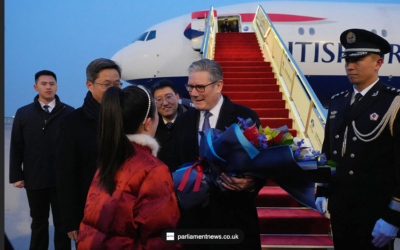Introduction
In an increasingly interconnected world, multinational companies (MNCs) wield significant influence across global markets, particularly in developing countries. However, with this influence comes the responsibility to uphold international human rights standards, a challenge that many MNCs face as they navigate complex and diverse socio-economic landscapes. Operating in developing countries offers vast opportunities for growth and impact, but it also presents unique ethical dilemmas, including the risk of human rights violations such as forced labor, environmental degradation, and exploitation of vulnerable communities. This article explores the strategies and best practices MNCs can adopt to ensure they not only comply with international human rights standards but also contribute positively to the socio-economic development of the regions in which they operate. By focusing on proactive measures, stakeholder engagement, and rigorous compliance frameworks, MNCs can balance their business objectives with their ethical obligations, fostering sustainable growth that benefits both their operations and the communities they serve.

Multinational Companies as Tools in Political Campaign
The current economic situation in many developing countries is challenging, with widespread poverty, unemployment, and inequality. In this context, incumbent governments Ghazouani seeks re-election in Mauritania on the cusp of energy and mining boom | Reutersoften use multinational companies as tools in their election campaigns, showcasing foreign investment as a sign of progress and development. However, this focus on economic gains frequently overlooks critical human rights issues. Governments may prioritize short-term economic benefits, such as job creation and increased revenue, to bolster their political standing, while neglecting the broader impacts on local communities and workers. This approach can lead to the exploitation of vulnerable populations, environmental degradation, and a disregard for labor rights, as the emphasis remains on economic achievements rather than on fostering sustainable and ethical business practices.

Balancing Business politics with Corporate Human Rights
Multinational companies must critically prioritize business ethics and moral considerations to minimize human rights violations in the countries where they operate. Ethical conduct not only builds trust with local communities but also ensures long-term sustainability and reduces the risk of reputational damage. For instance, the Rana Plaza disaster in Bangladesh highlighted the severe consequences of neglecting labor rights Abuses ‘still rife’: 10 years on from Bangladesh’s Rana Plaza disaster | Rana Plaza | The Guardian, as multinational brands faced global backlash for their involvement in exploitative practices. Similarly, Shell’s operations in Nigeria have been criticized for environmental degradation and human rights abuses, Nigeria: Government must halt Shell’s sale of its Niger Delta business unless human rights are fully protected – Amnesty International underscoring the need for companies to align their practices with ethical standards.
While maintaining relationships with the political landscape of a host country is crucial for operational success, multinationals must also give equal priority to respecting human rights. Engaging in transparent and fair practices, such as adhering to labor laws, avoiding corruption, and ensuring environmental responsibility, can prevent complicity in human rights abuses. Ultimately, balancing political dynamics with a steadfast commitment to human rights is essential for ethical and responsible business conduct on a global scale.

Proposed Strategies to Prevent Human Rights Violation in the Business Envirronment
To balance their relationships with political entities without violating human rights, multinational companies (MNCs) must adopt comprehensive strategies that integrate ethical considerations into their operations. One effective strategy is the implementation of robust corporate social responsibility (CSR) programs that align with international human rights standards. For example, in Europe, IKEA has demonstrated a commitment to balancing its political relationships while upholding human rights through its extensive sustainability initiatives. By focusing on fair labor practices, environmental stewardship, and community engagement, IKEA has managed to maintain strong government ties in various countries without compromising its ethical responsibilities Our view on protecting human rights – IKEA Global.
Similarly, in Canada, Bombardier Statement on Canadian Multi-Mission Aircraft | Bombardier MNCs like Bombardier have shown that fostering transparency and stakeholder engagement can help navigate political environments while respecting human rights. Bombardier’s efforts to ensure compliance with labor rights and environmental regulations, alongside its collaboration with local communities and governments, have allowed it to operate successfully without becoming entangled in human rights violations.
In both cases, these companies have balanced their political relationships by committing to ethical practices, engaging with stakeholders, and adhering to international standards. This approach not only protects human rights but also enhances the company’s reputation and long-term viability, proving that ethical business conduct is compatible with political and economic success.

In conclusion, multinational companies have a profound responsibility to balance their business objectives with a commitment to ethical practices and human rights standards, particularly in developing countries. By adopting comprehensive strategies that include robust corporate social responsibility programs, transparent stakeholder engagement, and strict adherence to international regulations, these companies can navigate complex political environments without compromising human rights. The success stories of companies like IKEA in Europe and Bombardier in Canada demonstrate that ethical business conduct is not only possible but also beneficial for long-term sustainability. Ultimately, by prioritizing human rights, multinational companies can foster positive relationships, enhance their reputations, and contribute meaningfully to global socio-economic development.


